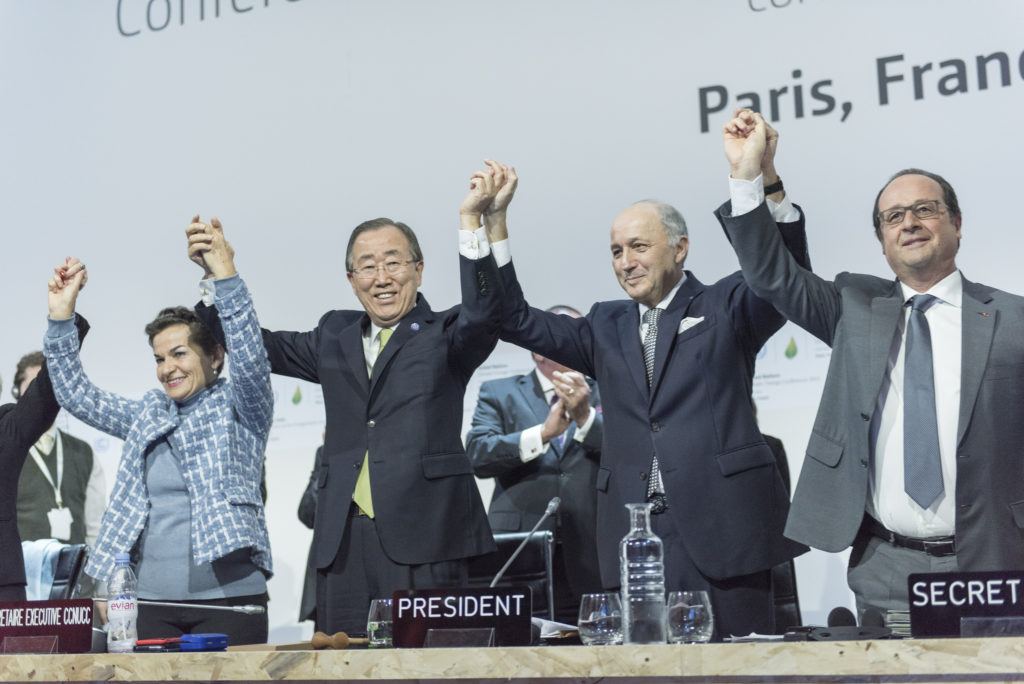
Getting a better grip on gas taxes
A study of gasoline taxes and subsidies in 157 countries shows global regression, even as a majority of countries made progress. It also offers a benchmark for holding governments accountable in the future.
When 195 nations joined to fight climate change in the 2015 Paris Agreement, leaders hailed the occasion as “historic” and “a tremendous victory.”
Others sounded notes of caution. Agreements and results are two different things, they said, especially when the agreements are nonbinding. Moreover, it can be difficult to measure the actions individual countries are taking due to a basic lack of reliable information and data.
That’s simply not good enough for Michael Ross, professor of political science at UCLA.
“If you can’t measure it then it’s very hard to hold them accountable,” said Ross. “And you can’t just take them at their word. Governments aren’t terribly reliable when talking about their wonderful achievements.”
That’s why Ross spent the past four years studying fossil fuel policies across 157 countries, culminating in an analysis published today in Nature Energy. In doing so, the project created a database that can be used to hold countries accountable for their commitments on gas taxes and subsidies, important tools in the global effort to stem carbon emissions.
“I think we’re finally going to have a clear picture of where we see meaningful reforms,” Ross said.
Of course, the analysis also offered a clearer picture of what’s already been happening. The main takeaway is that, despite strong international pressure, gas taxes dropped 13.3 percent globally from 2003 to 2015. The findings also offer the contradicting fact that two-thirds of the countries in the study actually increased their levies on the fossil fuel.
It’s a carbon emissions whodunit, and many of the usual suspects are there. Others may come as a surprise.
In general, low income countries aren’t to blame, Ross said. “The problem tends to be oil exporting countries and some large laggards like the United States, where the federal tax on gasoline was last raised in 1993.” In the U.S., the tax was small to begin with. Because of inflation, it has been declining in real terms for 23 years. The U.S. is the world’s top oil consumer, so what happens here has a huge global effect.
But the worst offender was Venezuela, which only taxes gas at about 4 cents per gallon.
“In Venezuela, there are stories about how you’ll fill up at the pump and the tip you give is usually worth more than the gasoline,” Ross said. “It’s significantly cheaper than water.”
On the positive side of things, the gasoline tax world champion is Norway, reining in consumption by charging an additional $7 per gallon. A perhaps-surprising second-place is Turkey, which is “a nice reminder that you don’t need to be a rich country to be doing the right thing,” Ross said.
Of course, concern for climate change isn’t the only factor motivating the taxes. There are plenty of local benefits to limiting gas consumption, such as reduced air pollution, traffic congestion and traffic deaths. China, which has been reeling from air pollution problems in its cities, made the biggest improvements of the top carbon emitters.

In other countries, the structure of tax policies plays a role in their performance. For example, despite taking great pride in its efforts to protect the environment, Germany’s taxes headed backwards because they’re adjusted to gas prices, but not to inflation.
There’s a lot of data to sort through and much more that can be learned from the study, Ross said. That’s the next task at hand for he and his coauthors, Chad Hazlett and Paasha Mahdavi.
Getting to this point has already required a major, concerted effort. There was no central location to find data, so the authors hired researchers on the ground in 15 countries. They also employed two dozen research assistants who spoke a dozen different languages. Then came the task of sorting out the numbers and analyzing the results.
For Ross, who has been at UCLA since 2001, it has all been worthwhile. Today’s study amounts to a breakthrough on what has been a career-long preoccupation—getting a firmer grip on not just what governments are saying, but what they are doing.
For those seeking to hold governments to environmental commitments, today’s study offers an important benchmark for a process that will last decades.





